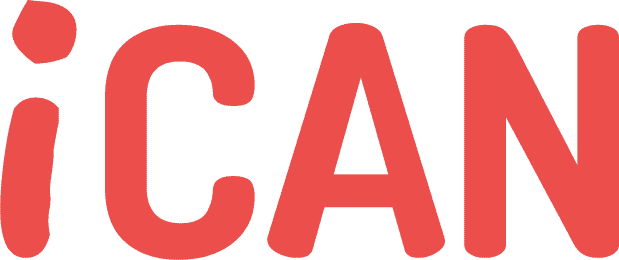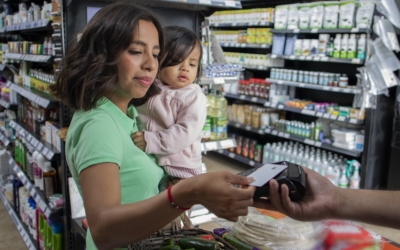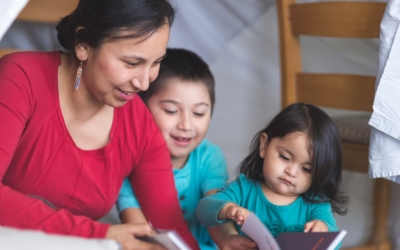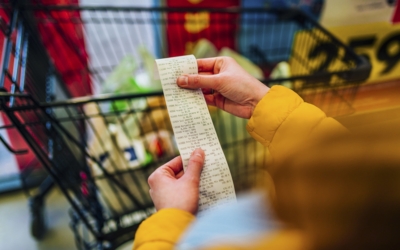Between 2016 and 2021, more than 81,000 immigrants made Calgary their new home, and just over 13,000 of these individuals were younger than age 15. It’s therefore no surprise that Newcomers represent the largest cultural group among all the households who access the I Can for Kids (iCAN) grocery gift card program. Over the past several years, our annual evaluations show that 40% to 50% of the recipients who access our support are immigrant and refugee families and approximately half of these households moved to Canada within the last five years.
What is the link between immigration and food insecurity?
Research shows how most Newcomers invest considerable efforts to establish a secure livelihood throughout the first decade after immigration. Like other vulnerable populations, immigrants and refugees face a higher likelihood of becoming food insecure when they lack enough income to meet their basic needs. The relationship between food insecurity and resettlement in Canada varies between provinces and continues to evolve based on shifting economic patterns, job market fluctuations, and housing costs and availability. However, research identifies several unique factors that can contribute to higher rates of food insecurity and low income among Newcomers, including but not limited to:
- grappling to find familiar and affordable food within a totally different food system
- exhausting their life savings to relocate or escape to a new country
- waiting several months or more to receive a legal work permit
- struggling to find a good-paying job while navigating an unfamiliar employment system and a new work culture
- receiving no recognition for job skills, credentials, education, and experience that they gained before moving to Canada
- difficulty understanding or accessing complex systems of government benefits, social services, and community supports and programs
- wrestling with social isolation, trauma, language barriers, culture shock, discrimination, or historical tension and conflict with other immigrant cultural groups
The degree of food insecurity among Newcomers will differ considerably across diverse immigrant and refugee populations. A person who immigrates to Canada may also face additional social barriers linked to food insecurity, such as disability or gender, sexual, and racial identities. The latest research shows that:
- a household is much more likely to experience food insecurity when the main breadwinner is a recent Newcomer who has lived in Canada less than 10 years
- the rate of food insecurity among recent immigrant adults is estimated to be 1.5 times higher than the rate among Canadian-born adults
- in a perinatal program in Edmonton, 94% of the immigrant mothers were food insecure, and half were severely food insecurity
- in a study across Regina and Saskatoon, up to 50% of recent Newcomer families and 41% of Newcomer children live with food insecurity
How do grocery gift cards help?
During our research with the University of Calgary, half the study participants were Newcomers who had accessed a variety of charitable food services. Based on their experiences with our program, they highlighted how our grocery gift cards offer many advantages over free food hampers, such as:
- enhancing their ability to budget enough money to buy familiar cultural foods
- optimizing their freedom to access cultural foods through major retail chains
- reducing their anxiety about adhering to religious dietary requirements
- enabling them to become familiar with and participate in the same grocery store system as their friends, neighbours, colleagues, and communities
- enabling them to buy their children common foods that their peers pack in their lunches for school
- ensuring they have the opportunity to take advantage of sales, bulk purchases, price matching programs, and discounted food options
In an eye-opening interview with a recent immigrant family, the mother explained how she had to give away at least 60% of the products they received in traditional food hampers because these specific items didn’t align with their Halal diet. She summed up the benefits of our program by noting how “the grocery gift cards help families get on their feet. It’s that simple. The cards provide so much freedom to lead your life with less stress and more choice.”
With your ongoing support, iCAN and our agency partners are well positioned to help Newcomer children and families stay connected, productive, and healthy.
To join iCAN’s expanding list of donors, sponsors, and champions, check out the different ways you can get involved or donate.
To learn more about I Can for Kids and their unique approach to childhood food insecurity, visit www.icanforkids.ca
About Donald Barker
Donald Barker has worked as a registered dietitian for more than 25 years. He also has a professional background in communications and has long advocated for populations who face adverse, unjust, or systemic barriers that lead to higher rates of poor social, mental, emotional, and physical health outcomes. Donald currently volunteers as an Advisor with iCAN to support our transition towards evidence-based approaches that help improve the well-being of children in Calgary who live in low-income and food-insecure households.
About I Can for Kids Foundation
I Can for Kids works closely with multiple agency partners to target and distribute grocery gift cards to food-insecure families who are most in need. The iCAN grocery gift card program is a more dignified and inclusive approach to dealing with food insecurity, allowing families to shop where everyone else shops and to choose foods that are appropriate for their health and cultural needs. Explore their website to discover more about iCAN’s impact over the years.
For more information and media inquiries, please contact iCAN Executive Director, Bobbi Turko at bobbi@icanforkids.ca.




